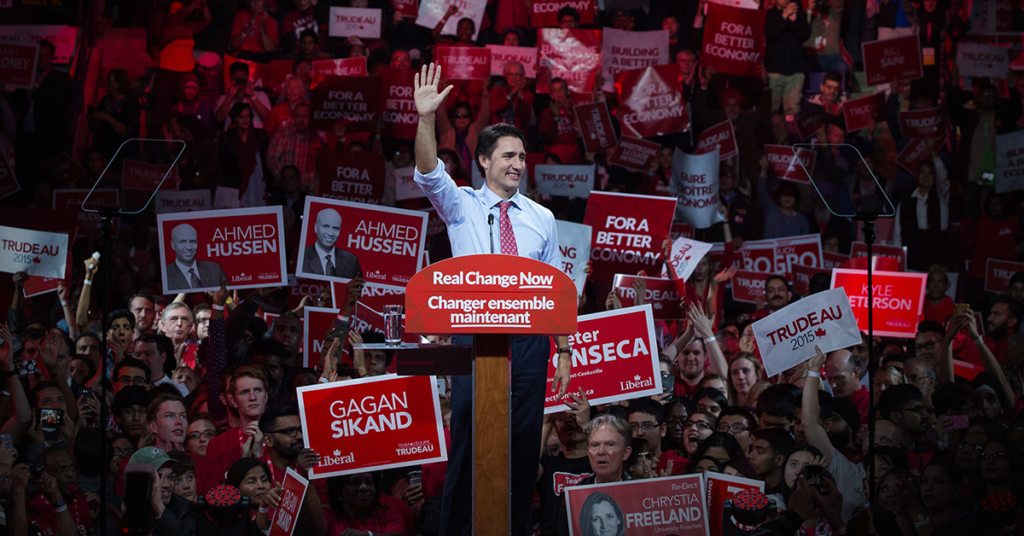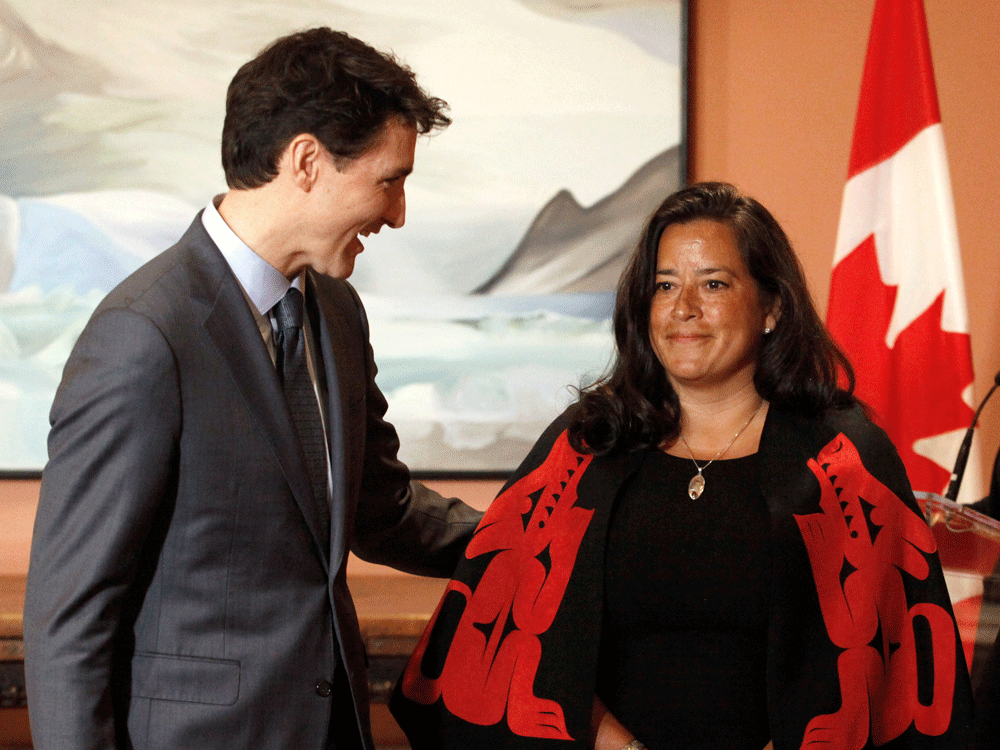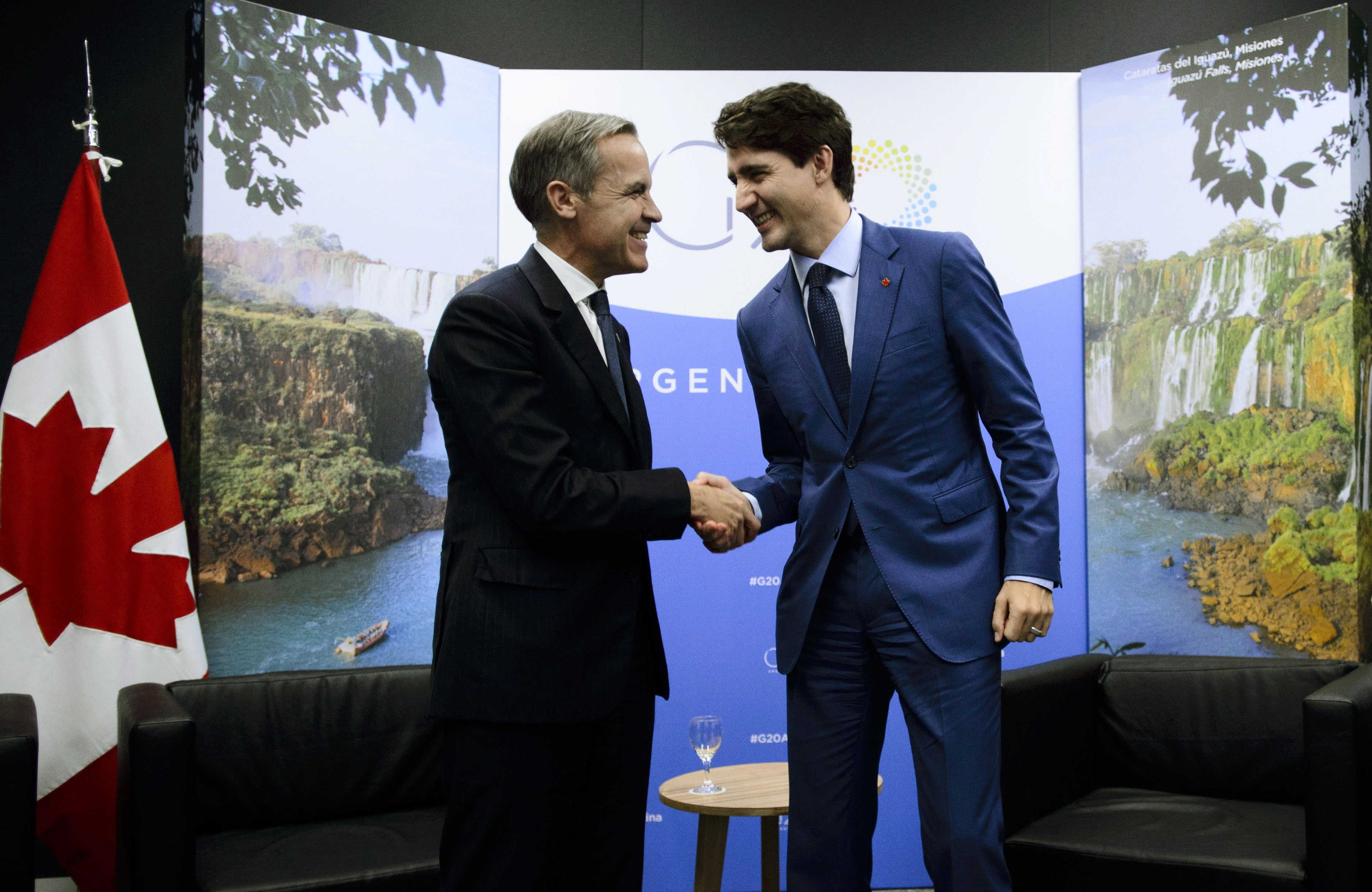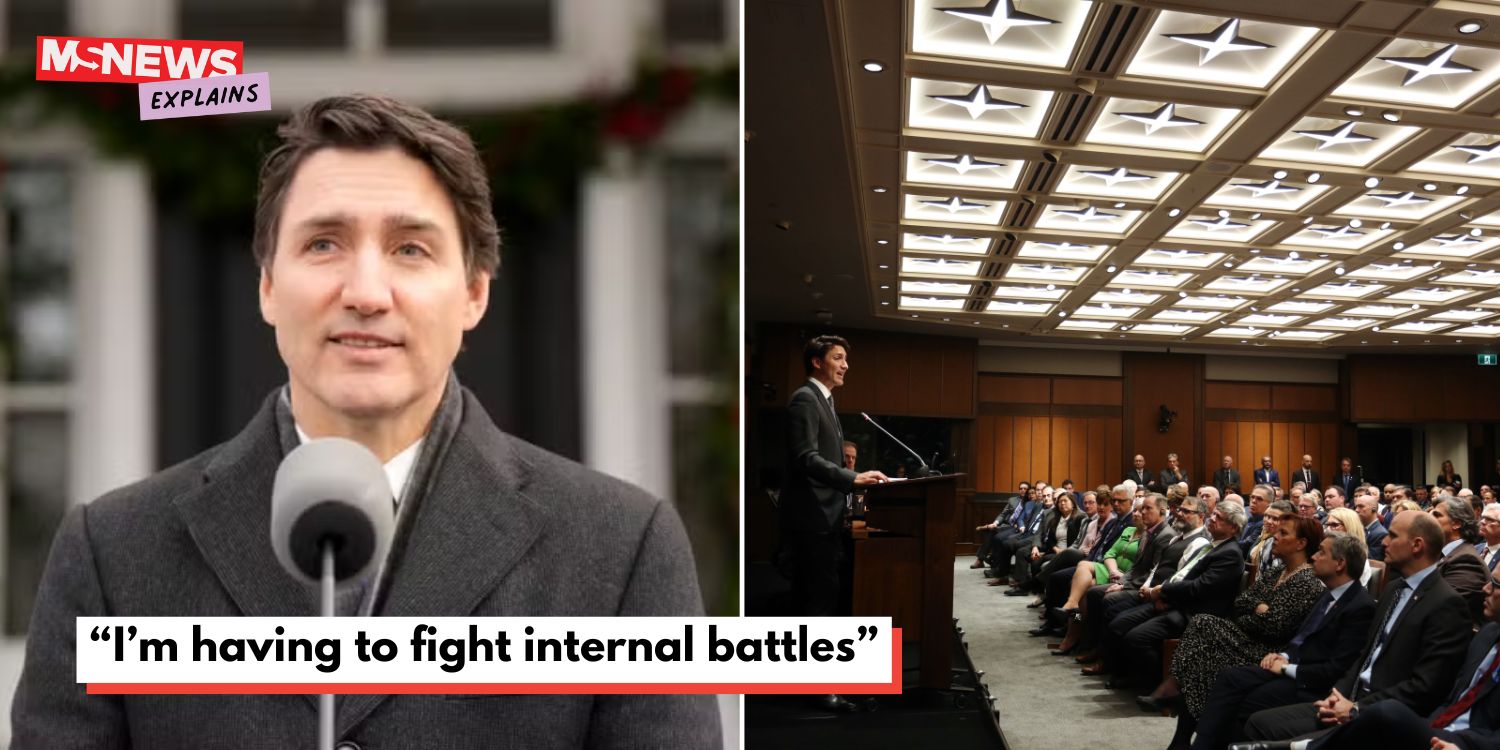MS Explains: 5 things to know about Justin Trudeau stepping down
This piece is part of MS Explains, a segment where we provide clarity to common or key topics, making them easier to digest.
–
After nine years as Canada’s prime minister (PM), Justin Trudeau is bowing out of political leadership — having announced his resignation on Monday (6 Jan).
Mr Trudeau became PM as a charismatic, fresh-faced 43-year-old after leading the Liberal Party to success in the 2015 Canadian federal election.

Source: Liberal Party of Canada
Now, the father of three is also relinquishing his spot as party leader after first taking over in 2013. However, this move does not come as a surprise after reports of internal party strife and poor approval ratings.
Mr Trudeau himself admitted he may not be “the best option” for the upcoming federal election, slated for later this year, if he’s “having to fight internal battles”.
Here’s why Justin Trudeau resigned and what Canada can expect following his announcement.
1. Internal pressure prompted Trudeau to step down
Mr Trudeau cited “internal battles” during his announcement on Monday, nodding to the building dissatisfaction within the Liberal Party.
His party members have been calling on him to quit for the good of the party and for the country, with even his closest allies criticising his leadership.
Last month, Mr Trudeau’s deputy PM, Chrystia Freeland, resigned from Cabinet and publicly accused him of not doing enough to address President Trump’s promise to impose a 25% tax on imported Canadian goods.

Source: Prime Minister of Canada on YouTube
Ms Freeland, who was also Canada’s minister of finance from 2020 to 2024, cited differences with Mr Trudeau about “the best path forward for Canada”.
In her resignation letter addressed to the PM, she said that they had been at loggerheads “for the past number of weeks”.
Ms Freeland is not the only Liberal Party member to have issues with the outgoing PM.
A polling tracker by Canadian research body Angus Reid Institute revealed that Mr Trudeau’s approval rating had plummeted to an all-time low of 22% in December 2024, a sharp drop from its peak of 65%.
According to public broadcaster CBC, Mr Trudeau’s resignation follows months of private and public efforts to get him to step down.
2. Trudeau’s political ‘booboos’ and scandals eroded trust
Mr Trudeau’s tenure was marred by controversies that have hurt his image and credibility.
In 2019, he faced an ethics violation for allegedly using his influence in the SNC-Lavalin affair.
The engineering and construction company was facing a lawsuit over allegedly bribing officials in Libya to win contracts.
He was criticised for pressuring former justice minister and attorney general Jody Wilson-Raybould to avoid taking SNC-Lavalin to trial, arguing it could result in significant job losses for Canadians and harm the party’s electoral prospects.

Source: National Post
That same year, news broke that Mr Trudeau committed a faux-pas in 2001 — by wearing brownface makeup to a party at the West Point Grey Academy where he was a teacher.
According to TIME magazine, the picture had been taken at an “Arabian Nights”-themed gala.
Following the publication of the photo, Mr Trudeau apologised for his actions and admitted that he “should have known better”.

Source: TIME magazine
However, other instances of the former PM in inappropriate makeup have emerged and Mr Trudeau even admitted to wearing blackface makeup and an afro for a high school performance of a Jamaican folk song.
Mr Trudeau also faced another ethics scandal in 2020 over a new government programme for students.
He was investigated by the federal ethics watchdog for picking a charity with close ties to his family to run the programme.
3. Who might be Canada’s next PM?
Mr Trudeau stepping down as PM signals a new era of leadership for Canada and many wonder who’s next in line for the top job.
Top contenders include Ms Freeland, who was also the first woman to hold the role of finance minister.
The 56-year-old was a journalist before joining politics and entered Mr Trudeau’s cabinet in 2015.
The vacant PM position has also attracted the interest of Mack Carney — the former governor of both the Bank of Canada and the Bank of England.

Source: The Globe and Mail
“I’ll be considering this decision closely with my family over the coming days,” said Mr Carney to the Financial Times.
A central banker with extensive experience in economic leadership, Mr Carney is a key adviser to Mr Trudeau’s government.
According to the BBC, Mr Trudeau has been attempting to bring Mr Carney, who has never held public office, into his team. In July 2024, the outgoing PM described him as an “outstanding addition” to politics.
Transport Minister Anita Anand is yet another potential candidate. The 57-year-old lawyer entered politics in 2019 and became Minister of Defence in 2021.

Source: The Logic
She then oversaw the Treasury Board before taking up the role of transport minister and minister of internal trade in December.
4. Canadian parliament frozen till 24 March
Canada’s parliament has been prorogued until 24 March following Mr Trudeau’s announcement.
This means that during this period, all parliamentary proceedings, including debates and votes, have been suspended. However, parliament has not been dissolved and the government remains in power.
In this sense, prorogation is different from dissolution as the latter terminates parliament and sets off a general election.
With a prorogued parliament, the Liberal Party will have some time to elect a new leader. But until then, Mr Trudeau — who opted for prorogation as “a reset” — will stay in office.
While it is unclear how the new leader will be chosen, Liberal Party president Sachit Mehra said that the party will convene a meeting of its national board this week to choose Mr Trudeau’s successor.
5. Federal election looming
After prorogation ends on 24 March, Parliament will vote on a confidence motion. A loss would dissolve Parliament and trigger a federal election.
A general election is expected by October this year, where Canadian citizens 18 years old and above will go to the polls.
However, it could be called earlier, as the main opposition Conservative Party has been actively pushing for an early vote for months.
Leading the Conservative Party is Pierre Poilievre, a strong contender for PM if the Liberals are defeated.
Mr Poilievre, seen as Mr Trudeau’s political adversary, was ejected from Parliament in April after calling the latter a “wacko” and “extremist” and refusing to apologise.
Also read: Paetongtarn ‘Ung Ing’ Shinawatra: 7 facts about Thailand’s new Prime Minister
Paetongtarn ‘Ung Ing’ Shinawatra: 7 facts about Thailand’s new Prime Minister
Have news you must share? Get in touch with us via email at news@mustsharenews.com.
Featured image adapted from Le Monde and National Observer. Image on the right for illustration purposes only.









